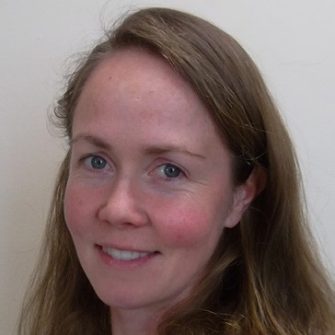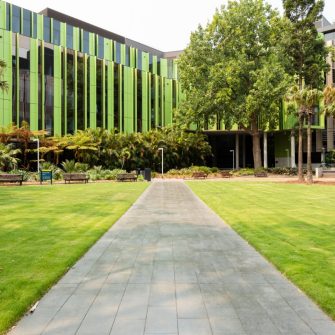Graduate Diploma in Forensic Mental Health
- Commencing Terms
- Term 1 & 3
- Duration
- 1.5 Years
- Delivery Mode
- Online
- Campus
-
Kensington
- Codes
- Program code 5512
-
Commonwealth Supported Places are available for this program2025 Indicative CSP first year fee
- $10,000*
-
2025 Indicative CSP fee to complete degree
- $10,000*
-
2025 Indicative first year full fee
- $28,500*
-
2025 Indicative full fee to complete degree
- $29,000*

- Overview
- Entry requirements
- What will I study?
- Future careers
- How to apply
- Fees & Scholarships
Overview
There is a rapidly growing need for a skilled workforce in forensic mental health in NSW. The criminal aspects of forensic mental health services are largely provided for by NSW Justice Health, and the development of new facilities will require additional suitably qualified staff for the foreseeable future. Forensic psychiatry private practice provides further opportunities for practitioners.
The Graduate Diploma in Forensic Mental Health offers you comprehensive training in forensic mental health, covering the theoretical and practical aspects of criminal, civil, child and family forensic mental health sub-specialities. The program aims to provide specialised levels of expertise in the clinical and legal aspects of Law and Forensic Mental Health to an emerging skilled multidisciplinary workforce. It draws upon the existing body of leading expertise in law, medicine and nursing, and the rich clinical resources of the Justice Health Long Bay Matraville complex which includes the high secure Forensic Hospital. The program is entirely online, through video lectures, forums and activities.
Key features
- Multidisciplinary field
Your study will build on the mental health disciplines of psychiatry, medicine, nursing, law, criminology, psychology, occupational therapy and social work. Lectures are delivered by experts in the field, practising forensic clinicians, legal practitioners and other experts.
- Designed for mental health professionals
The program is designed for mental health professionals including medical practitioners, nurses, psychologists and social workers. It’s also open to members of the legal, policing and correctional professions.
- Flexible delivery
This program is taught entirely online, through video lectures, forums and activities. The flexible delivery allows you to balance your study with other commitments.
- Connected learning experience
Peer contributions throughout this program provide an enhanced learning experience that reflects real-world practice. You’ll have the opportunity to build a network of professional contacts with specialised knowledge in their respective areas of expertise.
Why study at UNSW?
Leverage our industry connections
The program is proud to have an active role in transforming mental health work in correctional facilities across NSW. We’re also working toward tailoring the program to increase its interstate and international engagement through our global partners. This program draws upon the rich clinical resources of the Justice Health Long Bay Matraville complex, which includes the high secure forensic hospital.
Study with the School of Psychiatry
This program is delivered by UNSW’s School of Psychiatry, which is widely reputed as the pre-eminent psychiatric research department in the country. It’s also one of the leading university psychiatry research groups internationally. The School receives considerable research funds from the Australian National Health and Medical Research Council.
Want to see more from UNSW Medicine and Health?
Entry requirements
Entry into this program requires an undergraduate degree in health (medicine, nursing and other allied health), law, psychology or criminology AND
- Honours or postgraduate qualification in health, law, psychology, criminology OR
- At least two years full-time professional or volunteer experience in health, law, psychology or criminology
English language requirements
You may be asked to provide evidence of your English proficiency to study at UNSW depending on your educational background and citizenship. English language skills are vitally important for coping with lectures, tutorials, assignments and examinations - this is why UNSW requires a minimum English language competency for enrolment.
If you’re completing an Australian Year 12 qualification (e.g. NSW HSC or equivalent), you do not need to provide anything extra to prove your proficiency. Your qualification will be used as evidence of your English proficiency.
If you do need to provide evidence of your English proficiency, this will be indicated in your application. You can prove this by providing evidence that you meet one or more of the following criteria:
- English language tests and university English courses
- Prior study in the medium of English
- Other qualifications
If you need to improve your English skills before you start your degree, UNSW College’s Academic English Programs are for you. The programs are suitable for various English levels and help you prepare for university studies and life in Australia.
For more details, visit the English Language Requirements page.
Entry into this program requires an undergraduate degree in health (medicine, nursing and other allied health), law, psychology or criminology AND
- Honours or postgraduate qualification in health, law, psychology, criminology OR
- At least two years full-time professional or volunteer experience in health, law, psychology or criminology
English language requirements
You may be asked to provide evidence of your English proficiency to study at UNSW depending on whether you are from an English-speaking background or non-English speaking background. English language skills are vitally important for coping with lectures, tutorials, assignments and examinations - this is why UNSW requires a minimum English language competency for enrolment.
If English is not your first language, you’ll need to provide proof of your English proficiency before you can be given an offer to study at UNSW. You can do this by providing evidence that you meet one or more of the following criteria:
- English language tests and university English courses
- Prior study in the medium of English
- Other qualifications
If you need to improve your English skills before you start your degree, UNSW College’s Academic English Programs are for you. The programs are suitable for various English levels and help you prepare for university studies and life in Australia.
For more details, visit the English Language Requirements page.
Check the specific English language requirements for this program
What will I study?
Full program structure
Future careers
With a rapidly growing need for a skilled workforce in forensic mental health both in Australia and internationally, this degree opens career opportunities in a variety of settings, including:
- departments of corrections
- departments of community services
- fire brigades
- police forces
- judiciary and legal agencies
- departments of the Attorney General
- juvenile justice service
- district mental health services
- private practice in the areas of health, law and criminology.
In New South Wales, the Justice Health and Forensic Mental Health Network (JH&FMHN) are the primary providers of forensic mental health services in criminal justice settings. They require increasing numbers of qualified professionals to support their work in improving Forensic Mental Health.
How to apply
Applications must be submitted through our Apply Online portal. We encourage you to submit your completed application as early as possible to ensure it will be processed in time for your preferred term. Some high-demand programs and Faculties with limited places may have an earlier application deadline or commencement date. Find out more.
Ready to start your application?
For most international students, applications are submitted via our Apply Online, opens in a new window service. We encourage you to submit your completed application as early as possible to ensure it will be processed in time for your preferred term.
Some high-demand programs with limited places, may have an earlier application deadline or may have an earlier commencement date. For more information visit our international applicant information page.
Ready to start your application?
Fees & Scholarships
You may be eligible for a Commonwealth Supported Place (CSP) for this degree. Domestic students who receive a CSP will have a substantial proportion of their fees subsidised by the Australian government. Start your postgraduate application today with our guide on how to apply.
Commonwealth Study Assistance, such as Austudy and Youth Allowance, is available for some master’s degrees. For the most up-to-date information and list of degrees, visit UNSW Current Student Financial Support.
*The indicative Commonwealth Supported Place (CSP) fees are an estimate based on the relevant student contribution band/s for a Commonwealth Supported Place undertaking a standard full-time load of 48 units of credit per year (1 Equivalent Full Time Student Load/1 EFTSL). To find out more about Commonwealth Supported Places visit Postgraduate Commonwealth Support.
Indicative fees are a guide only and have been calculated based on the typical enrolment patterns of students undertaking the degree/program. The indicative fee listed here is an estimate for tuition only and excludes non-tuition fees and charges. The amount you pay will vary depending on the calendar year of enrolment, the courses you select and whether your study load is more or less than 1 Equivalent Full Time Student Load (48 units of credit (UOC) per year).
You should not rely on indicative fees as fee increases are assessed when required and may exceed the indicative figures listed here. Actual fees are calculated on enrolment. More information on fees can be found at the UNSW fees website.
*Fees are subject to annual review by the University and may increase annually, with the new fees effective from the start of each calendar year. The indicative fees listed here are based on an estimated average and are for tuition only, other fees and charges are not included. The amount you pay will vary depending on the calendar year to enrol, the courses you select and whether your study load is more or less than 1 Equivalent Full Time Student Load (8 courses per year).
Indicative fees are a guide for comparison only based on current conditions and available data. You should not rely on indicative fees. More information on fees can be found at the UNSW fees website.
Indicative fees to complete the program have been calculated based on a percentage increase for every year of the program. Fee increases are assessed annually and may exceed the indicative figures listed here.
Indicative fees to complete the program include tuition plus an estimate of study-related costs of approximately $1,000 per year. To find out more about other costs, visit UNSW International.
Scholarships
At UNSW, we award over $83 million in scholarships each year. We pride ourselves on rewarding excellence and making university accessible to students from all walks of life. Whether you’re a domestic or international student, our range of scholarships, prizes and awards can support your journey.

QS World University Rankings, 2025

AFR Top100 Future Leaders Awards, 2020-2025

#1 Australian uni attended by start-up founders





